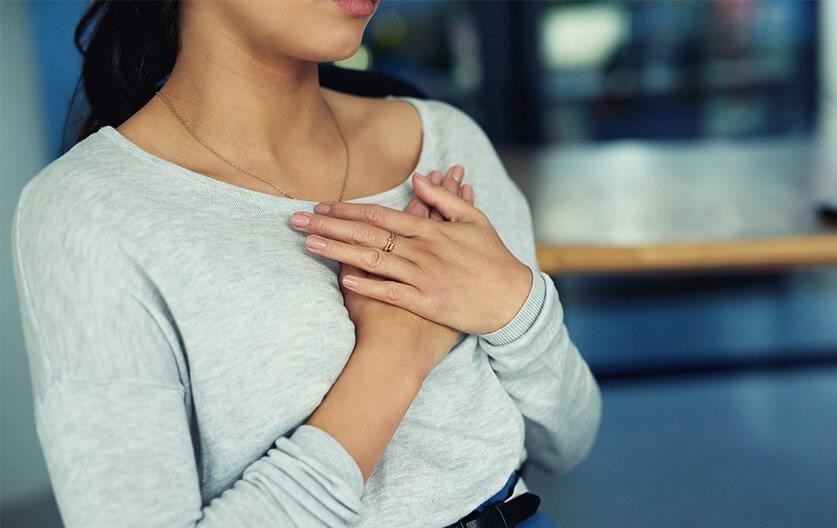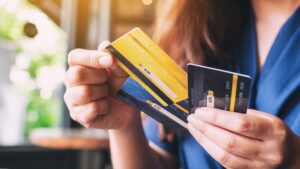Do your breasts swell and cause pain every month during or before the beginning of your periods? If yes, you do not have to panic or fear anything worse. Instead, you have a common condition of cyclic mastalgia or cyclic breast pain during periods.
Cyclic implies anything, which goes away and comes back predictably and mastalgia is another way to define breast pain. In most cases, cyclic breast pain is bearable but if your pain becomes worse, you have to look for ways to manage it. However, before you look for remedies, you must know the cause of breast pain during periods. Moreover, you have to identify the problem of cyclical mastalgia.
Read more who is father the of microbiology
Breast Pain Causes during or before Periods
In most cases, premenstrual breast swelling and its tenderness take place because of the fluctuating levels of hormones. Hormones found in the body of a woman fluctuate during a regular menstrual cycle. However, the exact timing of any hormonal change varies among females. Estrogen is responsible for the enlargement of the breast ducts.
Moreover, the production of progesterone causes swelling of the milk glands. Both of these hormones force your breasts to feel pain and soreness. Progesterone and estrogen increase from day 14 to day 28 in any 28-day cycle.
Estrogen increases during the middle of a menstrual cycle and the level of progesterone rises right before one week of menstruation. Hence, the combination of hormones not only causes breast pain during periods but also other discomforts. Excluding hormones, a few medications containing estrogen may cause certain breast changes, like swelling and tenderness.
Read more intersting articles on health ,tech, fashion etc visit omg blog
Symptoms to Identify the Problem of Cyclic Mastalgia
Women experience cyclic mastalgia at a specific time during each menstrual cycle and involve certain symptoms. These are as follows-
- Breast pain experienced before 5 days to 10 days of the beginning of a period goes away automatically after the end of the period.
- When women have heavy, tender, and aching breasts but the pain is shooting and sharp as well.
- Cyclic mastalgia leads to a lump or swollen breasts before or during the periods.
- Note-Breast pain in some cases becomes severe to prevent physical activity and sex. A few women reported the interference of breast pain with sleep, work and education. As hormonal levels change naturally with the age of a woman, PMS breast tenderness improves as a woman reaches her menopause.
With the objective to create awareness among women, wonderize, the manufacturer of feminine hygiene products is constantly on a movement to spread knowledge regarding periods and their effects on the woman’s body. Here we discover the ways to manage breast pain during periods.
Simple and Natural Ways to Manage Your Breast Pain during Periods
You may try a few simple and natural ways to manage your breast pain during periods. These include the following-
1. Warm or Cold Compression
Whether you have a mild, moderate, or severe form of cyclic mastalgia, you must make sure to apply cold compression or warm compression on your breasts. The selection of warm or cold depends on your body requirements and underlying weather conditions. Regardless of your option, make sure to rest for a while after compression.
2. Wear a Comfortable Bra
Many women have succeeded in managing their breast pain without medication and treatment by simply changing their bras. Accordingly, if you find your breasts swelled than normal, your regular bra is excessively tight. In this situation, one should change the size of her bra and look for a comfortable one. You have to buy soft bras with supportive cups rather than forcing the breasts into your regular ones. Moreover, if you feel breast pain while sleeping, you must sleep with your soft bras.
3. Limit or Avoid Caffeine and Alcohol Intake
Health experts often recommend women with cyclic mastalgia avoid or at least limit their caffeine intake. No one can say the exact amount of caffeine/alcohol one should intake to avoid cyclic breast pain but it is safe to limit it to 3 cups of tea/coffee in a day. In contrast, it is better to avoid alcohol at least five days before the beginning of your period. The reason is that the pain potential increases with an increase in the consumption of caffeinated beverages.
4. Select Foods Rich in Nutrients
You have to select varieties of nutrient-rich foods to manage your breast pain during periods. These are spinach, peanuts, hazelnuts, canola oils, safflower oil, olive oil, and corn. Moreover, you may intake bananas, carrots, and avocados. Excluding this, you should switch to carbohydrates of low glycemic index, like oat bran and brown rice.
5. Include Flaxseed in Your Regular Diet
A few pieces of evidence revealed that ground flaxseeds have helped in reducing monthly breast pain. You may sprinkle a few flaxseeds in your smoothies, add them to baked foods, and use them as toppings in your regular cereals.
6. Chaste Berry Supplements
Chaste berry supplements of about 20 milligrams to 40 milligrams daily may reduce a few common symptoms related to cyclic mastalgia in women.
7. Reduce the Intake of Fatty and Salty Foods
Women should remember that foods containing high amounts of fat and salt increase pain and discomfort. Hence, one should reduce or eliminate such substances from the diet before one week of the period. Doing so will help a lot in preventing or at least managing symptoms.
8. Intake Vitamin Supplements
You must intake a few multivitamin supplements, especially Vitamin E to boost your health and manage your PMS problems.
9. Exercise and Meditation
Regular exercise may improve your common PMS problems, like breast soreness and pain, fatigue, and cramps. Particularly, if you experience breast pain during periods, you should practice progressive muscle relaxation techniques daily. Other than that, you must undergo mindfulness meditation to improve your cyclic mastalgia and related menstrual symptoms.
10. Self-Examination
Lastly, self-examination monitors any change in breast shape and breast tissues. If you are in your 20s to 30s, you should never miss a self-examination of your breasts monthly. Especially, you have to try self-examination right after your period when you have no pain and minimum tenderness or swelling.
To Sum up,
Breast pain, soreness, and tenderness during periods are manageable with simple home care techniques. However, if lifestyle changes do not help you, contact your healthcare provider immediately.





More Stories
Chronic Cardio: Are You Wasting Your Time?
Top 13 Incredible Health Benefits of Avocado!
Best CrossFit Workouts to Improve Your Fitness